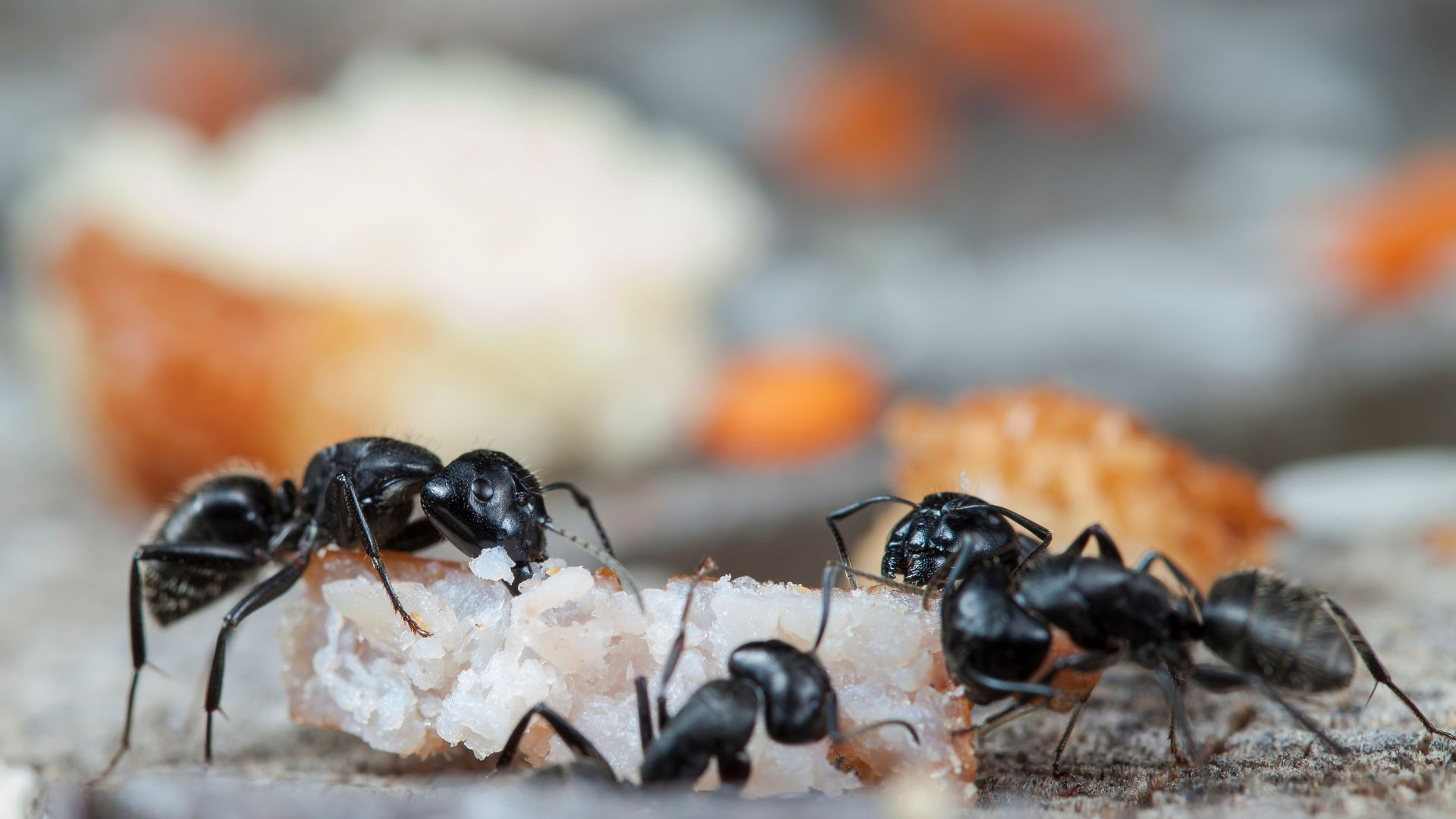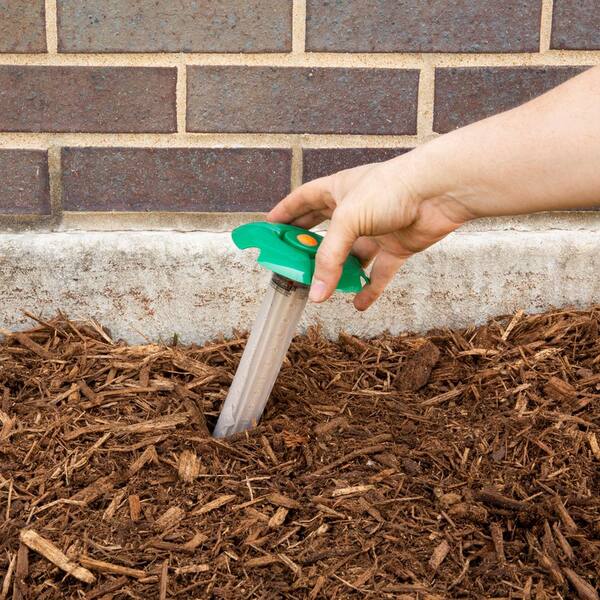Total Ant Control: Techniques and Services to Beat Ant Troubles
Environmental Influence of Bug Control: Balancing Performance With Sustainability
The ecological effect of bug control is a crucial issue that requires a delicate balance between achieving effectiveness in making sure and handling pests sustainability of our environments. From the usage of dangerous chemicals that permeate right into our soil and water to the unplanned effects on non-target types, the consequences of traditional bug control methods are far-reaching.
Dangerous Chemicals in Insect Control
The utilization of harmful chemicals in parasite control positions considerable ecological and wellness threats that call for careful consideration and reduction strategies. Insecticides, herbicides, and chemicals are generally utilized to eliminate pests, yet their extensive application can lead to unintended effects. These chemicals can pollute dirt, water resources, and the air, impacting not just the targeted bugs but additionally valuable bugs, wildlife, and human beings.

To address these threats, incorporated parasite administration (IPM) techniques are being advertised as a much more sustainable choice. IPM involves a combination of approaches such as biological control, environment adjustment, and the targeted usage of pesticides as a last resource (ant control newtonnc). By embracing a holistic strategy to pest control, we can reduce the environmental and health effects associated with harmful chemicals while effectively taking care of pest populations
Influence on Non-Target Types
Considering the unexpected consequences of bug control methods, the effect on non-target types is a vital facet that needs thorough assessment. While parasite control steps intend to target specific insects, various other organisms in the ecological community might be accidentally affected. Non-target types, consisting of advantageous bugs, birds, creatures, and even plants, can suffer indirect or straight injury from pesticide applications or biological control techniques.
Pesticides created to deal with a certain insect pest might damage pollinators like or all-natural killers such as ladybugs. Biological control agents, if not species-specific, can pose risks to unintended targets, interfering with the eco-friendly equilibrium.
To reduce the effect on non-target species, incorporated parasite administration (IPM) techniques that emphasize a holistic technique to pest control are recommended. These approaches focus on making use of environmentally friendly practices, minimizing injury to advantageous microorganisms while successfully handling pest populations. Performing complete risk analyses and monitoring the end results of insect control initiatives are necessary steps in safeguarding non-target types and promoting total community wellness.
Soil and Water Contamination
Unintended environmental repercussions of parasite control techniques prolong past influencing non-target species, with significant ramifications for dirt and water contamination - termite control services. Chemicals, herbicides, and chemical fertilizers used in bug control can leach into the soil and infect groundwater, posturing a threat to both aquatic and earthbound communities.
Water contamination is another critical concern connected with insect control practices. To minimize soil and water contamination from pest control tasks, integrated parasite management approaches that focus on sustainability and lessen chemical inputs are vital.
Air Contamination From Pesticide Use
Exposure to air-borne pesticides throughout agricultural applications postures a considerable issue for air contamination control procedures. When pesticides are splashed onto crops, they can volatilize right into the air and form unpredictable organic substances (VOCs) and other air-borne pollutants. These chemicals can add to the development of ground-level ozone, a major part of smoke that can have damaging effects on human health and wellness, plant efficiency, and overall air high quality. In addition, chemical drift, where pesticides are brought by the wind to unintended locations, can bring about the contamination of nearby ecological communities and water bodies.

Techniques for Sustainable Insect Control
In the world of farming practices, carrying out sustainable bug control strategies is paramount for maintaining environmental balance and protecting crop yields. Sustainable insect control emphasizes the use of eco-friendly methods to handle bug populations properly while lessening harm to non-target microorganisms and ecosystems. Integrated Pest Management (IPM) is an extensively taken on technique that integrates biological, cultural, physical, and chemical control approaches to accomplish long-lasting pest administration services.
One key strategy in lasting bug control is promoting biodiversity within agroecosystems. By enhancing all-natural opponents of bugs, such as parasitoids and predators, farmers can reduce the demand for synthetic pesticides. Plant rotation and diversity are likewise reliable methods to interfere with pest life cycles and develop much less positive conditions for parasites to flourish. Additionally, making use of pest-resistant crop selections and utilizing techniques like catch cropping can help in reducing insect stress without relying greatly on chemical interventions. Ultimately, by incorporating these sustainable parasite control methods, farmers can achieve an equilibrium between pest management performance and environmental stewardship.
Conclusion
In conclusion, the ecological influence of pest control techniques have to be thoroughly taken into consideration to stabilize effectiveness with sustainability. Dangerous chemicals made use of in pest control can result in dirt and water contamination, air contamination, and injury non-target varieties - ant control services. It is vital to apply lasting pest control techniques to lessen these adverse results on the setting and advertise a healthier community for future generations
By embracing an alternative strategy to pest control, we can minimize the environmental and health effects connected with unsafe chemicals while effectively handling pest populaces.

To mitigate the air pollution created by pesticide use, it is necessary to adopt integrated bug monitoring techniques that focus on the usage of non-chemical insect control techniques, such as plant turning, natural predators, and resistant plant selections. Lasting pest control highlights the usage of More Help eco friendly methods to handle bug populaces properly while reducing damage to non-target microorganisms and ecological communities. Integrated Pest Management (IPM) is a commonly embraced technique that incorporates organic, social, physical, and chemical control approaches to achieve long-lasting insect administration options.